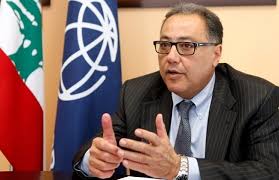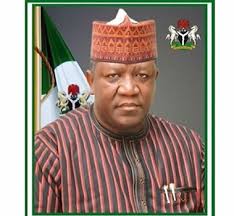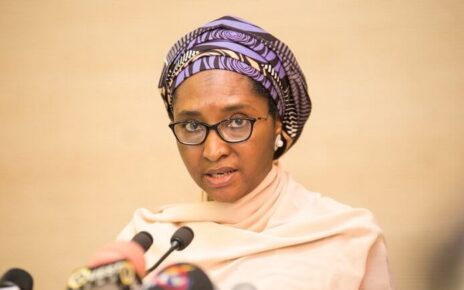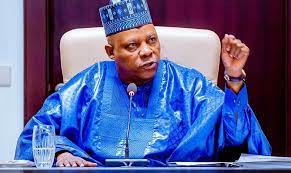The World Bank and the International Monetary Fund (IMF) have jointly canvassed the need for the Nigerian government to embrace structural reforms in governance as a strategic step towards achieving inclusive growth and fast-track the nation’s economic recovery.
The Breton Woods institutions’ positions were contained in their latest findings on Africa’s economic outlook and Nigeria’s economic growth potential.
The World Bank in its just published 20th edition of Africa’s Pulse, reported that Nigeria, South Africa and Angola’s recovery, the region’s three largest economies, remained weak and was weighing on the region’s prospects.
Specifically, on Nigeria the multilateral banking institution reported that growth in the nation’s “non-oil sector had been sluggish, while in Angola the oil sector remained weak. In South Africa, low investment sentiment is weighing on economic activity”, adding that to achieve inclusive growth, people, girls and women must be empowered.
Commenting on the report, World Bank’s Vice President for Africa, Mr. Hafez Ghanem, said: “Empowering women will help boost growth. African policy makers face an important choice: business as usual or deliberate steps toward a more inclusive economy.
“After several years of slower-than-expected growth, closing the opportunity gap for women by removing barriers to their economic participation is the best way forward. Excluding Nigeria, South Africa and Angola, growth in the rest of the subcontinent is expected to remain robust although slower in some countries”, the banker projected.
The latest Africa’s Pulse report, which has special sections on accelerating poverty reduction and promoting women’s empowerment, stated that overall growth in the region was projected to rise to 2.6 per cent in 2019 from 2.5 per cent in 2018, which is 0.2 percentage points lower than the April forecast.
In a related development, the IMF in a statement issued at the end of the visit by its team led by the Senior Resident Representative and Mission Chief for Nigeria, Amine Mati, to Nigeria, advocated an urgent need for comprehensive measures to reduce vulnerabilities and raise economic growth in the country.
Specifically, the Fund advised the Nigerian government to consider structural reforms on governance and corruption in order to stimulate the nation’s sustainable growth in the years ahead.
While noting that the implementation of the power sector recovery plan is essential to boosting prospects for higher and more inclusive growth, the IMF pointed out that despite efforts to fast-track Nigeria’s economic growth, the pace of economic recovery remained slow.
It reported that the depressed private consumption and investors’ wait-and-see attitude kept growth in the first half of the year at two percent, a rate significantly below population growth, noting further that headline inflation has fallen, reaching its lowest level since January 2016.
The Breton Woods institution reported: “Spurred by one-off increases in imports, the current account turned into a deficit in the first half of 2019 after three years of surpluses. Gross international reserves have fallen to below $42 billion at end-August 2019, mainly reflecting a decline in foreign holdings of short-term securities and equity. The exchange rate in various windows remained stable, helped by steady sales of foreign exchange by the Central Bank of Nigeria (CBN).
“Carryover from 2018 to 2019 helped increase public investment spending in the first half of 2019, but revenue under-performed significantly relative to the budget target in the first half of 2019.
“Over-optimistic revenue projections have led to higher financing needs than initially envisaged, resulting in over-reliance on expensive borrowing from the CBN to finance the fiscal deficit. Federal government interest payments continue to absorb more than half of revenues in 2019”, the IMF added
Noting that outlook for Nigeria under current policies is challenging, the Fund predicted that the nation’s growth was expected to peak at 2.3 per cent this year on the strength of a continuing recovery in the oil sector and improved agricultural sector’s output.
This is even as it also projected that revenue initiatives planned under the 2020 budget, including a VAT reform that increases the rate, introduces a minimum registration threshold and exempts basic food products would help partially offset declining oil revenues and the impact of higher minimum wages, and by so doing keep the overall consolidated fiscal deficit elevated.
It stated: “The current account’s shift to a deficit is expected to persist while the pace of capital outflows continues to weigh on international reserves. Inflation will likely pick up in 2020 following rising minimum wages and a higher VAT rate, despite a tight monetary policy.
“A comprehensive package of measures—whose design and implementation will require close coordination within the economic team and the newly-appointed Economic Advisory Council—is urgently needed to reduce vulnerabilities and raise growth,” it added.
The IMF team reported further that the increasing Central Bank of Nigeria’s (CBN) financing of the government reinforced the need for an ambitious revenue-based fiscal consolidation that should build on the initiatives laid out by the government in the Strategic Revenue Growth Initiative.
While expressing its support for the current apex bank’s tight monetary policy regime which, it says, should be maintained through more conventional tools, the IMF staff noted that managing vulnerabilities arising from large amounts of maturing CBN bills required stopping direct central bank interventions, the introduction of longer-term government instruments to mop up excess liquidity and moving towards a uniform market-determined exchange rate.
The team stated: “Banking sector prudential ratios are improving. However, new regulations to spur lending—which has recently increased—should be carefully assessed and may need to be revisited in view of the potential unintended consequences on banks’ asset quality, maturity structure, prudential buffers and the inflation target. Continued strengthening of banks’ capital buffers would enhance banking sector resilience.
“Structural reforms, particularly on governance and corruption and in implementing the much-delayed power sector recovery plan, remain essential to boosting prospects for higher and more inclusive growth,” the IMF staff added.
Meanwhile, President Muhammadu Buhari has described the growth projection statistics by the two multilateral institutions as “wild estimates” which “bear little relation to the facts on the ground.”
President Buhari, in a statement by the Special Adviser to the President (Media and Publicity), Femi Adesina, expressed his views on the latest reports on Nigeria by the World Bank and the IMF while administering oaths of office on members of the newly constituted Presidential Economic Advisory Council, chaired by Prof. Doyin Salami.
He said: “As you develop your baseline study, I would like you to focus on primary data collection. Today, most of the statistics quoted about Nigeria are developed abroad by the World Bank, IMF and other foreign bodies.
“Some of the statistics we get relating to Nigeria are wild estimates and bear little relation to the facts on the ground. This is disturbing as it implies we are not fully aware of what is happening in our own country.
“We can only plan realistically when we have reliable data. As you are aware, as a government, we prioritised agriculture as a critical sector to create jobs and bring prosperity to our rural communities. Our programmes covered the entire agricultural value chain from seed to fertiliser to grains and ultimately, our dishes.
“As you travel in some rural communities, you can clearly see the impact. However, the absence of reliable data is hindering our ability to upgrade these programmes and assure their sustainability”, President Buhari maintained.




